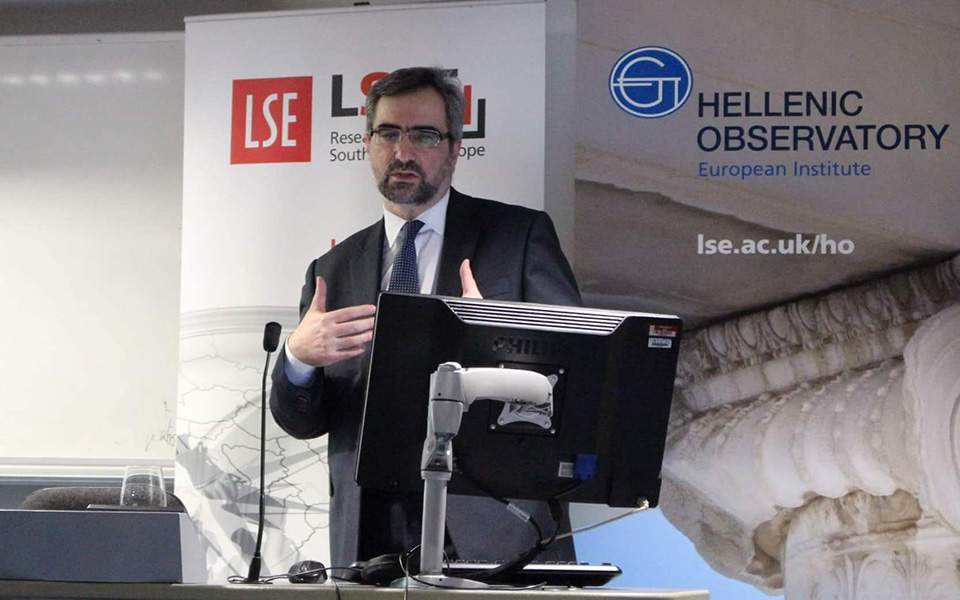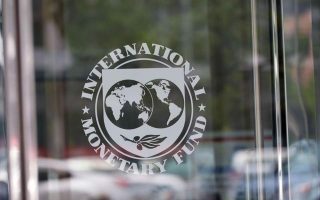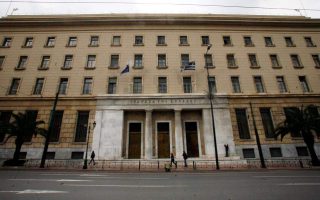EBRD’s long-term investment in Greece

Investing over 2 billion euros in Greece, the role of the European Bank for Reconstruction and Development (EBRD) has been instrumental to the recovery of investments in this country over the last three years. The lender’s alternate board director, Anthony Bartzokas, who has played a key role in bringing EBRD activity to Greece and extending it here, spoke to Kathimerini about the prospects of this cooperation.
The EBRD’s mandate in Greece was recently extended until December 2025. How did this happen and what does it mean?
Our shareholders approved the proposal for the extension of the EBRD’s engagement in Greece by December 2025. This unanimous decision emerged only after an assessment of the Greek economy’s investment gap and the medium-term financing needs of the private sector. In addition, it was taken into account that the support of the EBRD’s work in Greece since 2014 has had the committed backing of the government, the opposition and the private sector.
The message to investors in Greece and abroad is that the EBRD is available for medium-term investment ventures. A first step in this direction is our decision to strengthen the bank’s presence in northern Greece, with the opening of a satellite office in Thessaloniki in 2019.
How much has the EBRD contributed to the Greek economy to date?
EBRD funding in Greece this year will amount to approximately 850 million euros. Within three years, the bank’s investments in Greece are well above 2 billion and projects of 1.4 billion are currently evaluated. The fact that all 45 projects that we are currently financing are all in the private sector, with an average fourfold crowding in of private capital, leads to a considerable boost in the investment recovery process. With regard to specific projects, we believe that the EBRD’s role to date has been catalytic in the recapitalization of systemic banks, in corporate bond issues, large-scale co-financing of investments, support of the investment needs of the energy sector, and privatizations.
How can this experience be exploited for the recovery of investment in Greece?
It is commonplace among policy analysts to point out that the recovery of investments is a prerequisite for the sustainability of the Greek economy. The EBRD’s successful involvement in Greece confirms the scale of investment needs and the feasibility of launching financing structures with sound market economics criteria that mobilize private capital and enhance the prospects for economic growth. The next step in this direction could include partnerships with the private sector and fundraising in international markets for projects with predictable revenue streams. A second step to consider is the need for medium-term coordination of available resources to promote investment recovery. For the next five years, the resources available from EU funds and the amount of funding from international development banks will amount to circa 3 percent of GDP. The synergies of these funding structures can be utilized to benefit the Greek economy by properly prioritizing objectives and with active participation in the debate on the new architecture of international development banks in the EU.
Overall, the EBRD has come to cover only a small part of the development finance gap in Greece, effectively confirming the views of economists who argue that to achieve deep economic restructuring of national economies within a monetary union, targeted credit expansion and appropriate risk-sharing tools are needed.
Your participation in the equity system of systemic banks and the EBRD’s activation in NPLs is well-known. What is your assessment of the prospects of Greek banks?
International experience suggests that when a sovereign debt problem causes an economic downturn and spreads into the banking sector, normalization comes through a painful recapitalization process, nonperforming loan management, reintegration into international financial markets to ensure adequate access to liquidity and return to profitability through the accumulation of new assets. Our cooperation with Greek systemic banks tackles these challenges in a comprehensive way. The EBRD has actively participated in the recapitalization process of the four systemic banks; we are also investing in covered bond issues and NPL portfolios, and we are considering the possibility of risk-sharing programs for targeted financing. Moreover, Greek banks have been very successful in the EBRD’s Trade Facilitation Program (TFP). The breadth and the results of these collaborations underscore our support for the country’s banking system and confirm the high quality of the staff of Greek banks.
What is the main scenario of international investors for Greece?
We cannot make reference to a baseline scenario. Investors’ interest in Greece over the past 10 years mainly concerned government bonds. As far as the private sector is concerned, there is some interest but a limited actual mobilization of capital due to levels of expected profitability as well as the difficulty of securing funding from international banks and private lending institutions.
Following the crisis, Greece is perceived by investors as an emerging market. This has a negative impact on the assessment of investment projects and on the short-term capital flows to/from the Greek economy. Restoring normalization will not materialize automatically through potential future upgrades of the country’s credit rating. International investors will also factor in expected returns in private sector securities benchmarks (stock exchange, emerging trends in available CDS, corporate and bank bonds, project financing performance data).
To what extent can the Balkans become the economic hinterland for Greek businesses?
This has been a recurring debate in Greece, drawing on optimistic scenarios of economic expansion. Following the international financial crisis, the Balkans did not return to the pre-crisis levels of investment growth rates, while domestic consumption and GDP growth rates have stabilized. The gap between the Western Balkans and the EU members (Bulgaria, Romania) has also widened. In this environment, there are positive prospects for further consolidation of the presence of medium and large Greek enterprises in neighboring markets. The energy industry offers opportunities for investment in cross-border infrastructure and complementary activities. Finally, the geographical advantage for the further development of the transport sector is a given but its utilization implies an improvement in the conditions and the regulatory frameworks of the neighboring countries.
What are the EBRD’s investment priorities for the Greek economy?
Our goal is to contribute to the economic recovery by supporting private investment. The EBRD benefits the Greek economy through its financial instruments and the know-how of a development bank with an AAA credit rating. The EBRD’s priorities for the next two years are cooperation with the banking system, corporates access to capital markets and cross-border investment. Finally, the EBRD is currently increasing its annual investments and the amount and range of funding for the Greek economy will be determined by market conditions.





